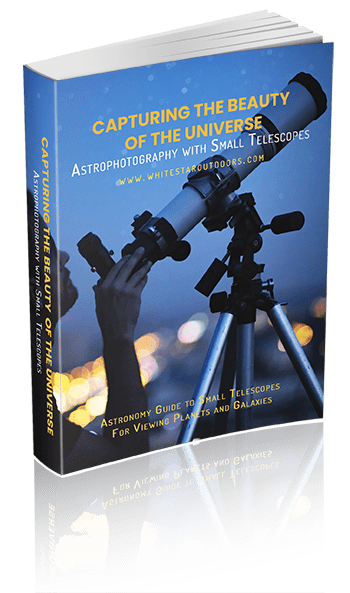Embarking on a journey through the vast expanse of the night sky is an awe-inspiring experience that ignites curiosity and wonder. For beginners in astronomy, finding the right astronomical telescopes can be a gateway to exploring distant galaxies, sparkling stars, and mesmerizing planets.
This guide will unravel the mysteries of choosing the perfect astronomical telescope for beginners, helping you set your sights on celestial marvels with confidence and clarity.
Types of Telescopes: Refractor, Reflector, and Compound
Understanding the different types of astronomical telescopes available is essential when choosing one. The three main types are refractors, reflectors, and compound telescopes.
Refractor telescopes use lenses to gather and focus light, providing clear images of celestial objects. They are known for their low maintenance and ease of use, making them popular among beginners.
Reflector telescopes utilize mirrors to capture light. They are a more affordable option with larger apertures for better light-gathering capabilities. They are great for observing faint, deep-sky objects.
Compound telescopes combine the best refractors and reflectors by using both lenses and mirrors in their optical design. This results in compact yet powerful instruments suitable for various viewing experiences.
Each type has advantages and considerations regarding factors like portability, price point, and intended use. Experimenting with different telescope types can help you find the perfect match for your stargazing adventures!
Key Features to Consider When Choosing a Telescope
When choosing an astronomical telescope for a beginner, several key features should be kept in mind. Consider the telescope’s aperture size.
The larger the aperture, the more light it can gather, resulting in more precise and brighter images of celestial objects.
Another important feature is the telescope’s focal length. A longer focal length provides higher magnification for observing detailed views of planets and stars.
Additionally, pay attention to the mount type—a stable mount is essential for smooth tracking and easy navigation across the night sky.
Based on your observing needs and portability requirements, consider whether you prefer a refractor, reflector, or compound telescope. Also, consider any additional accessories, such as eyepieces or filters, that may enhance your viewing experience with your chosen telescope.
Recommended Telescopes for Beginners
When choosing a telescope for a beginner astronomer, there are a few key factors to remember. One highly recommended option for beginners is the Celestron PowerSeeker 127EQ.
This telescope offers a large aperture and sturdy equatorial mount, making it easy to track celestial objects.
Another excellent choice for beginners is the Orion StarBlast 4.5 Astro Reflector Telescope. This compact and portable telescope provides clear views of the night sky while being simple to set up and use.
The Meade Instruments Infinity 70mm AZ Refractor Telescope is an excellent entry-level option for those interested in a refractor telescope.
Its user-friendly design makes it perfect for novice stargazers looking to explore the cosmos.
These telescopes are fantastic for beginners looking to start their astronomical journey with reliable equipment that won’t break the bank.
Tips for Maintaining and Caring for Your Telescope
Proper maintenance and care are essential to ensure your telescope functions optimally for years to come. Always store your telescope in a dry and dust-free environment when not in use. Dust can damage the lenses and affect visibility during stargazing sessions.
Regularly clean the lenses using a soft brush or cloth to remove any dirt or smudges that may distort your view of celestial objects. Avoid using harsh chemicals or rough materials that could scratch the delicate lens surface.
Additionally, align and collimate your telescope periodically to maintain sharp image quality. Proper alignment will enhance your viewing experience and prevent frustration from blurry images.
Always handle your telescope with care when moving it or adjusting its position. Rough handling can misalign components and potentially cause damage to the delicate optics inside.
By following these simple tips, you can prolong the life of your telescope and enjoy clear views of the night sky for many nights ahead.
Accessories to Enhance Your Telescope Experience
Various accessories can enhance your telescope experience and take your stargazing to the next level. One essential accessory is a quality eyepiece set, offering different magnifications for diverse celestial objects. A moon filter can help reduce glare and enhance lunar details during observation.
A sturdy tripod or mount is crucial for stability and smooth tracking of celestial objects in the night sky. Additionally, investing in a star chart or planetarium app can help locate specific stars, planets, and constellations easily.
Consider adding a red flashlight to your kit to preserve your night vision while adjusting the settings on your telescope. A comfortable chair or blanket for extended viewing sessions will make your stargazing experience more enjoyable.
If you’re interested in capturing breathtaking images of the cosmos, remember about astrophotography accessories. Filters, adapters, and remote shutters are just some tools that can help elevate your photography game under the stars.
Conclusion
Choosing the right astronomical telescope for beginners is an exciting journey into the wonders of the night sky. By understanding the types of telescopes available, considering key features that suit your needs, and investing in recommended models, you can embark on a fulfilling stargazing experience.
Remember to diligently maintain and care for your telescope to ensure its longevity and performance. Additionally, explore accessories that enhance your viewing capabilities and enjoyment of astronomy. With the right telescope and knowledge, you are all set to gaze into the depths of space and unlock the mysteries of the universe.
Happy stargazing!







